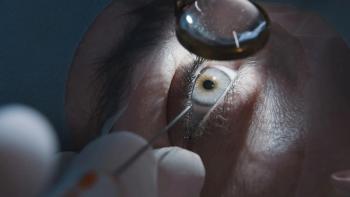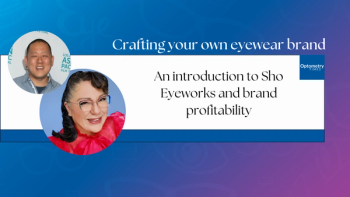
Be proactive in the fight against obesity
For the last few years, doctors have warned that life expectancy may decrease nationwide. The primary culprit-obesity-has been wreaking havoc on patient health and the healthcare system, and many systemic health problems have been on the rise.
For the last few years, doctors have warned that life expectancy may decrease nationwide. The primary culprit-obesity-has been wreaking havoc on patient health and the healthcare system, and many systemic health problems have been on the rise. Ocular health is no exception, and eyecare practitioners aren't doing enough to help stem the tide, says one expert.
Related:
The obesity epidemic has steadily grown year over year, with the rate more than doubling among U.S. adults from 1990 to 2010, according to the Centers for Disease Control and Prevention. Today, more than one third U.S. adults are considered obese, and another third are overweight.
"For a long time, smoking was the number one preventable cause of death and mortality. Obesity now exceeds it," says Kimberly Reed, OD, FAAO, at Nova Southeastern University College of Optometry.
Related:
Obesity and glaucoma
As a major factor in numerous negative health conditions, excess weight can indirectly affect systems that can hamper eyesight, such as the cardiovascular system. Hypertension is a major concern in ocular health in the form of glaucoma. Glaucoma affects an estimated 3 million people in the United States alone, with more than 6 million worldwide thought to be blind in both eyes due to the disease. And, like obesity, the number of people diagnosed with glaucoma is on the rise, too. From 2003 to 2013, the number of diagnoses rose by 22 percent, putting even more people at risk of the leading cause of blindness in the United States.
Related:
But as any eyecare professional knows, glaucoma-related vision loss is preventable.
"This is where we've got to be in a preventive role instead of a reaction role," Dr. Reed says. And, while excess weight is merely one of many factors that can affect a person's blood pressure, it, too, is a manageable condition. This is why Dr. Reed encourages optometrists to broach the subject.
"Don't avoid the conversation, because they need you," Dr. Reed says. "Their doctor is not talking to them about it. They're saying, 'You need to lose some weight.' Duh! I got up today and got dressed, I know I need to lose some weight. How do I lose some weight? Help me out here, I don't need to be judged, I need to be helped."
Ophthalmology Times Europe:
How to handle the conversation
Dr. Reed recommends approaching the subject as any other, non-emotional subject.
“’We've measured your height and your weight, and it's out of balance for optimal health. It's like saying your IOP is a little high today, so I want to take another look.’ It's a data point, it's non-emotional,” she says.
Ophthalmology Times:
By taking this kind of approach, it builds trust, credibility, and loyalty, she said, and it goes a long way toward helping not only the patient, but society as a whole.
"From a strictly financial standpoint, health is a lot cheaper than disease," Dr. Reed says. "We can't afford to take care of our sick people now, and we're going to be the ones paying as we go forward to take care of the patients we're not preventing sickness in now. We've got to step up to the plate."
Newsletter
Want more insights like this? Subscribe to Optometry Times and get clinical pearls and practice tips delivered straight to your inbox.





